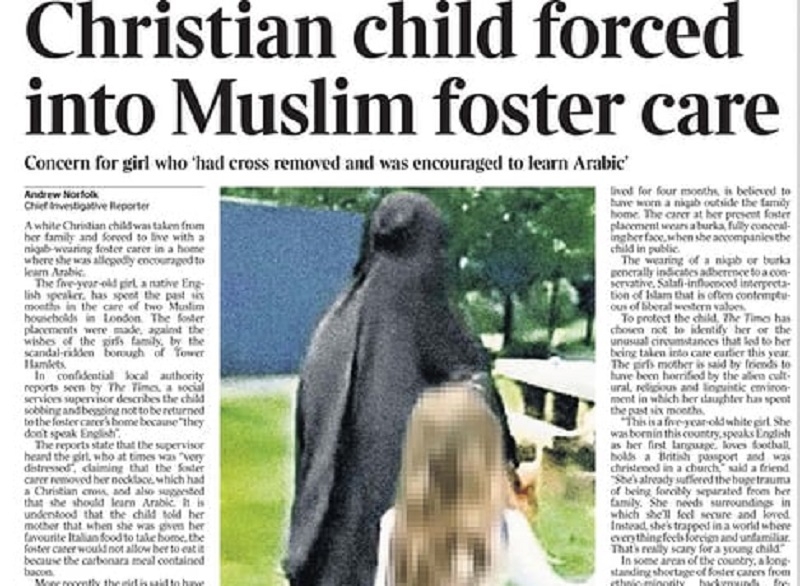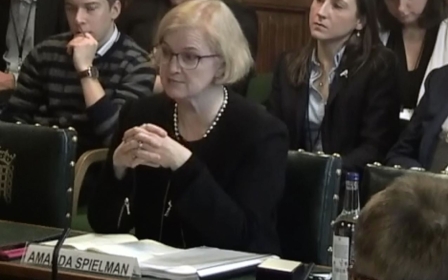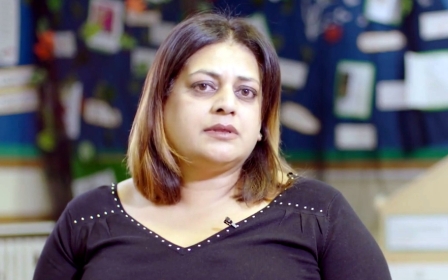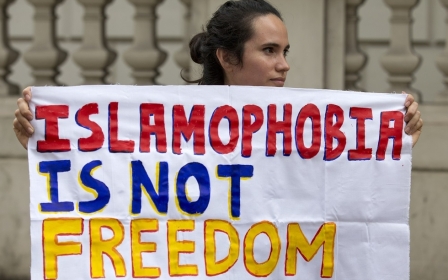British newspaper rapped for 'distorting' Muslim foster care story

A British newspaper was on Wednesday forced to publish a ruling that it had “distorted” reporting of a case involving a "white Christian child" being "forced" into the care of a Muslim family by a London council, after the country's press regulator upheld complaints.
The Times was required by the Independent Press Standards Organisation, or IPSO, to prominently feature its ruling in print and online on Wednesday, in a move described by Muslim leaders as “too little, too late” and criticised the newspaper for pushing an "inaccurate, misleading and bigoted narrative about Muslims".
The newspaper reported over a series of front page articles in August that the five-year-old girl had been left distressed after being placed with a Muslim family in Tower Hamlets. Its third article implied that a judge had ruled against Tower Hamlets council by ordering the child be removed from the foster family and placed with her grandmother.
Tower Hamlets complained to IPSO at the content, pointing out that it was the council that had requested that the girl be placed with her grandmother. IPSO found in favour of the council, saying the newspaper had breached article one of the editors code concerning accuracy.
The ruling stated The Times also failed to report that the child's grandmother, with whom she was ultimately placed, was a Muslim.
IPSO added: “It was misleading to report the concerns raised about the cultural appropriateness of the match, including concerns raised in social services reports, without taking the opportunity to report that the child’s guardian believed her to be settled and well cared for by her current foster carers."
The Muslim Council of Britain described the lack of an apology as "outrageous" and questioned the powers of the regulator.
The council's assistant secretary general, Miqdad Versi, said complaints made by himself and others about the alleged Islamophobic nature of the reporting had been dismissed because the regulator said they were not personally affected.
“There needs to be a real change in journalism so that racism and bigotry is not tolerated,” Versi told MEE. “Journalists on the ground, within these newspapers, need to stand up. It’s not good enough to for them to be silent.”
The role of British newspapers in fuelling Islamophobia came under the spotlight on Tuesday at a parliamentary committee on coverage of minority groups.
The new editor of the Daily Express, Gary Jones, said his newspaper had "created an Islamophobic sentiment which I find uncomfortable".
As MEE reported in February, the headteacher of a school in east London accused The Sunday Times of misleading her when they reported that the school had banned young students from wearing the hijab.
St Stephen’s School’s Neena Lall told MEE the newspaper said it was planning to report on the school’s achievements but ended up “twisting” her words.
Local residents and parents of the schools pupils told MEE that claims made by Amanda Spielman, the head of the school regulator Ofsted, that St Stephen’s was “bullied” into overturning the ban were “a complete fabrication”.
New MEE newsletter: Jerusalem Dispatch
Sign up to get the latest insights and analysis on Israel-Palestine, alongside Turkey Unpacked and other MEE newsletters
Middle East Eye delivers independent and unrivalled coverage and analysis of the Middle East, North Africa and beyond. To learn more about republishing this content and the associated fees, please fill out this form. More about MEE can be found here.




